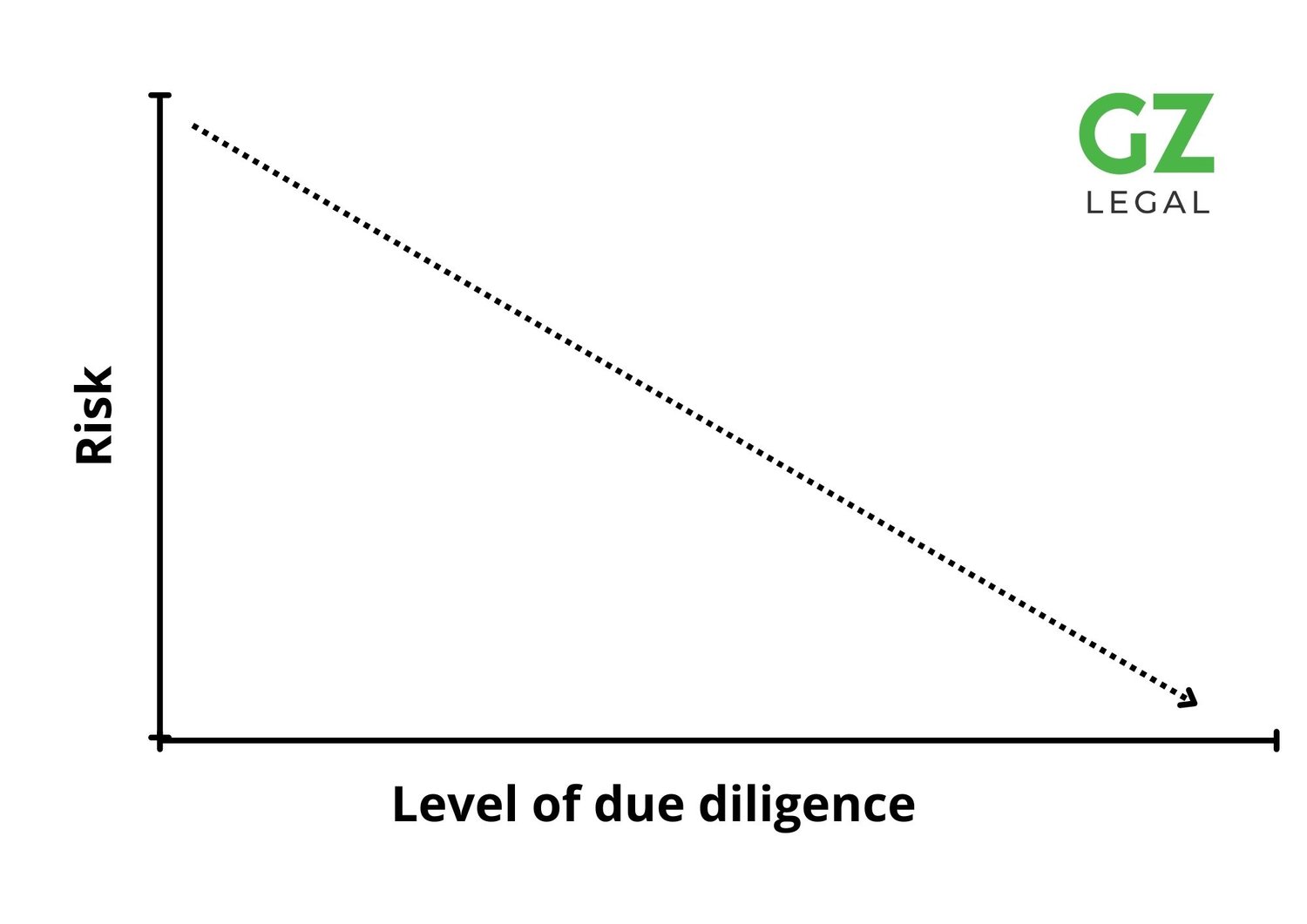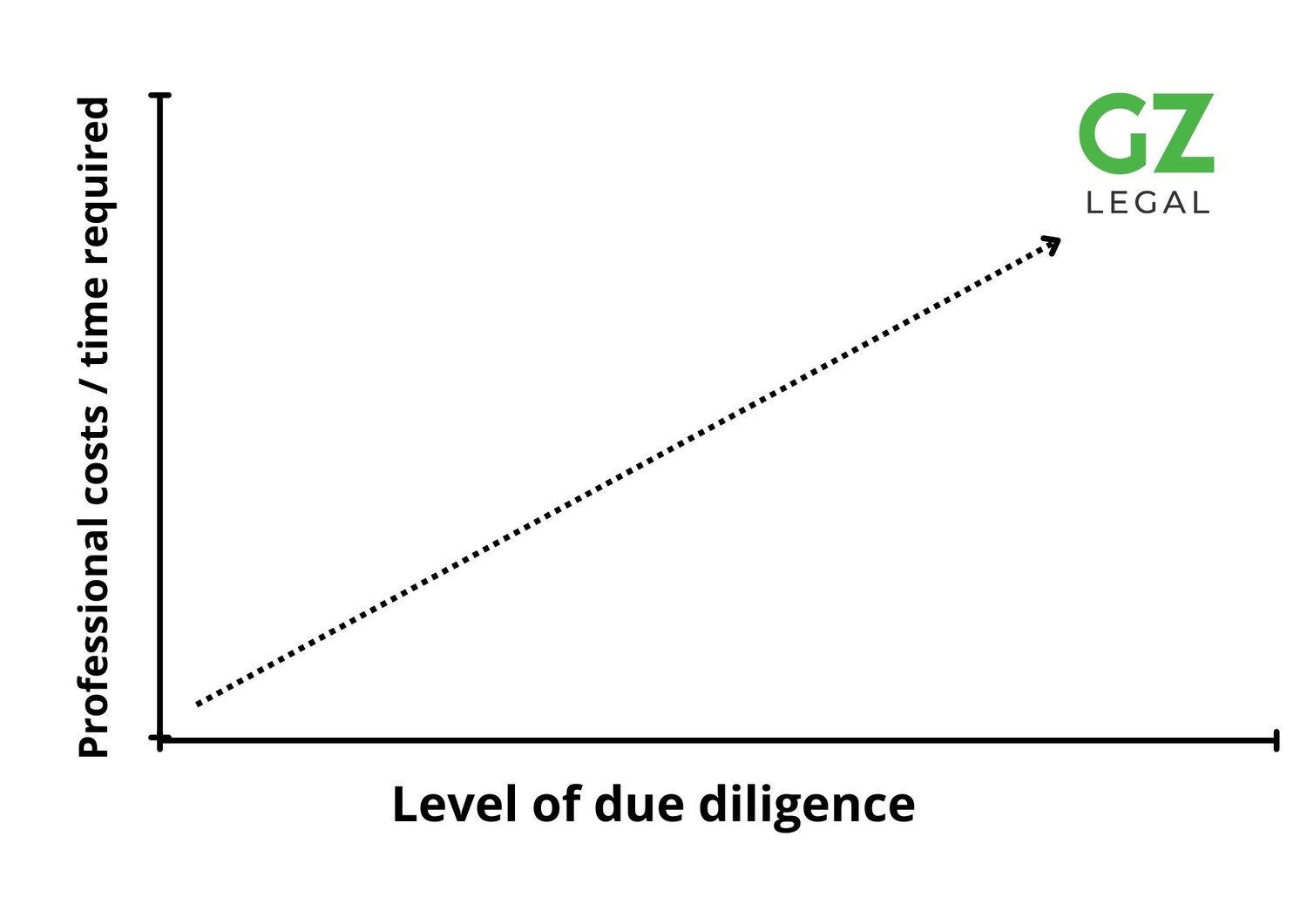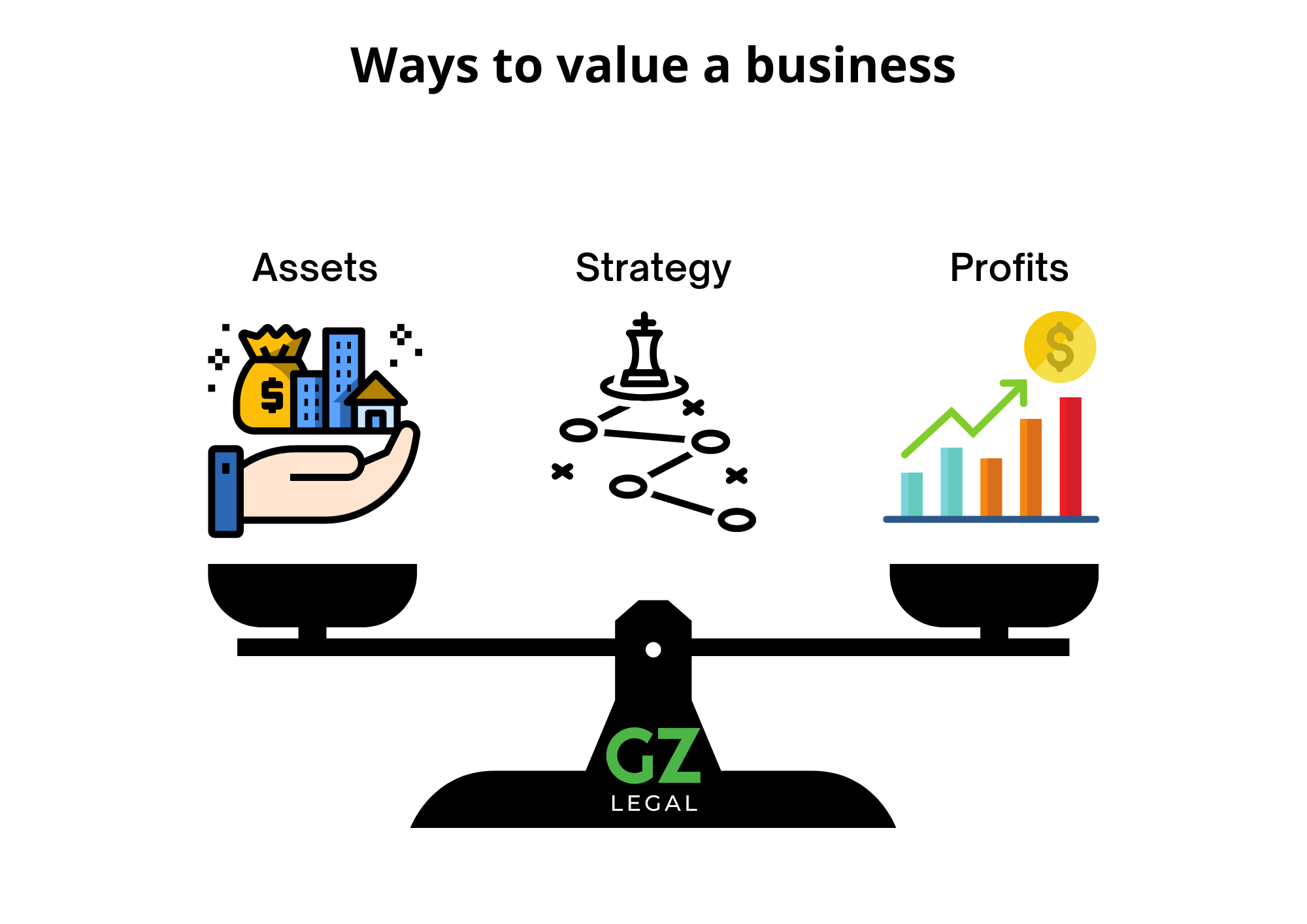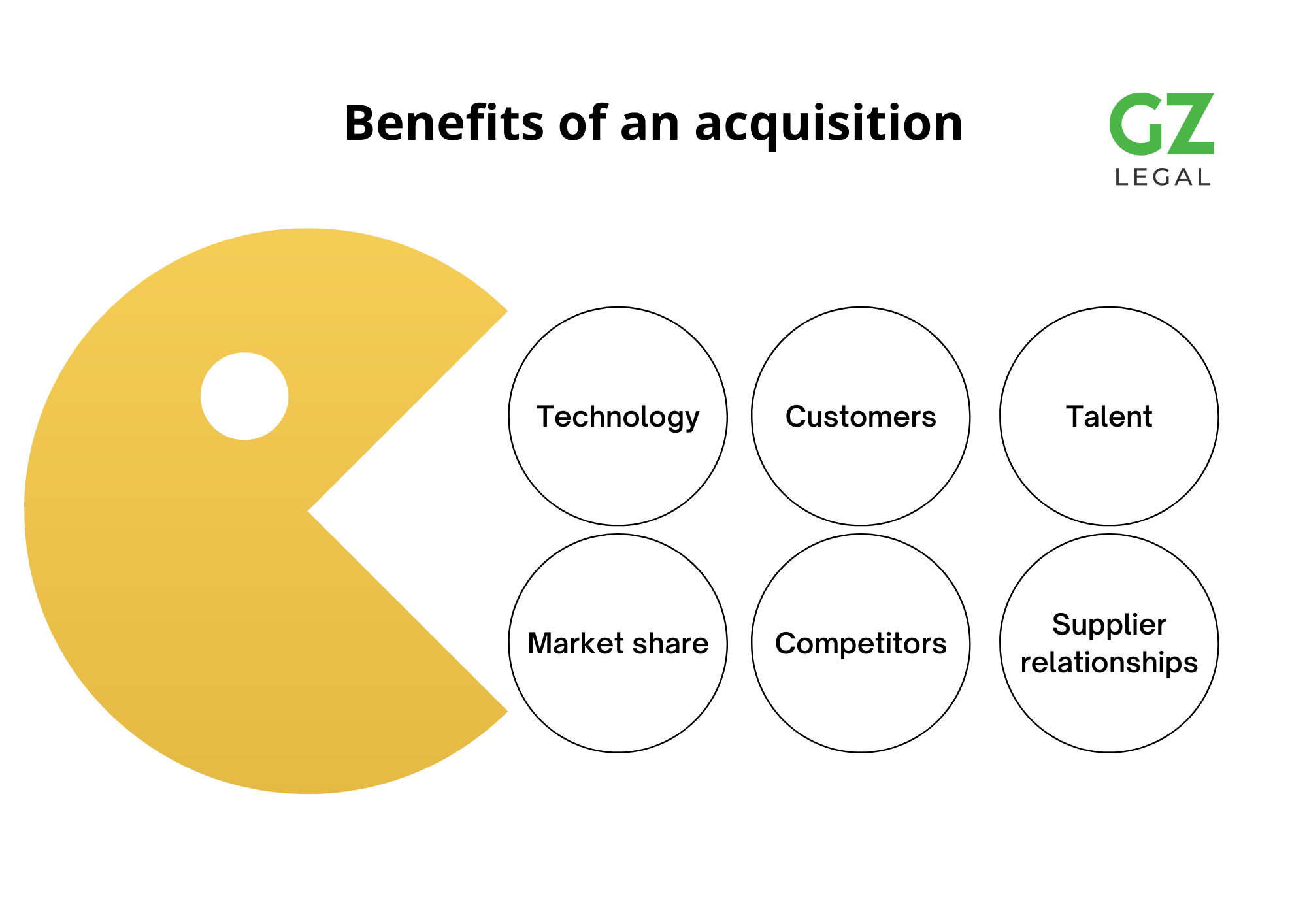Malcolm ZoppiSun Oct 15 2023
Buying a Small Business in the UK: What you need to know
If You Are Looking To Buy A Business, This One Is For You.
When buying an existing small business in the UK, there are a few key things to keep in mind to avoid making common mistakes.
First and foremost, it is important to engage a UK company acquisitions lawyer to conduct legal due diligence before proceeding with the purchase. This will ensure that you are fully aware of the legal implications of the acquisition whilst having access to professional advice.
Additionally, it is also important to understand how to value the business, and to have a clear understanding of the financial situation of the company. With these factors in mind, buying small businesses in the UK can be a successful and rewarding experience: one that leads you to lead your own business.
Finance lenders may be approached for help when acquiring a business, but this is outside the scope of the blog.
We will instead focus on how professional help leads to buyers making informed decisions by using the key findings about the target business, alongside the advantages of buying businesses and what factors to consider before making a formal offer.
Before turning yourself into a prospective buyer and submitting a formal offer, read this blog to find out more about the key things you need to know about buying a small business.
Introduction: The advantages of buying a small business
Due diligence: The importance of engaging a UK company acquisitions lawyer when buying a company.
Buying a company in the UK as a going concern is no small feat. An existing business with an existing customer base, proven track record, established brand and strong business relationships can be an invaluable addition to an investor’s collection of personal assets. Seeking professional advice is crucial when buying a business.
Although, a prospective business owner will want to ensure that the business they are buying does not have any hidden issues and, if any risks arise, to minimise these as much as possible via due diligence. UK acquisition lawyers like GZ Legal will record key findings and present these to the buyer of the business.
Despite the possibility of other interested parties and the business broker placing time pressures for the deal to be completed, buying businesses is an important decision that requires time.
What is due diligence
Learn about the Share Purchase Agreement and the Disclosure Letter and how Due Diligence affects these legal documents.
Legal due diligence is the investigation of a company or individual before signing a business deal or entering into an agreement. The purpose is to help the parties identify and assess potential risks, liabilities, and opportunities that could impact the transaction, and make sure that these are minimised in the share purchase agreement.
Professionals, such as GZ Legal, will help with creating the formal offer (the initial offer), which will be based on the key findings of the due diligence process. Companies like GZ Legal can also help negotiate the business purchase price throughout the buying process using a ‘letter subject to conditions’, which means that the buyer is willing to proceed with buying the business depending on certain conditions being met, such as the finance lenders providing the finance transfer in due time.
Due diligence generally includes a review of the target company’s financial statements, legal documents such employment contract, self-employed contracts, terms of business for sale of goods and other business records. It may also involve interviews with the company’s management, employees, established customer base, and suppliers.
Initial viewing of the business may be arranged and a search with the tax office may be conducted. The lawyer will record key findings in a report and present these to the buyer. The share purchase agreement will be amended to reflect findings, with the goal of minimising risks. Our experienced M&A Lawyers will be able to assist you with this. Arrange a free consultation now.
The process can be time-consuming and expensive, but it is a vital part of any purchase process and seeking professional help before you buy a business is crucial in maximising the chances of a successful transaction. Using this information in the buyer’s written communication will enable numerous advantages, which we will cover below.
Advantages of conducting due diligence include:

Reduced risk of financial loss
Conducting due diligence can help reduce the risk of financial loss for a company or individual when buying a business. By investigating a potential business partner, supplier, or customer, due diligence can help uncover any red flags that may indicate financial risk.
This type of investigation can help protect a company or individual from misrepresentation or other financial losses. Due diligence is an important tool for any business or individual looking to minimize financial risk. Accountants will also deal with the financial statements transfer to offer the buyer a thorough understanding of the financial aspects of the business.
Improved decision-making ability due to access to better information
By having access to more information, you can make more informed choices that could lead to greater success and profit. By identifying red flags and warning signs, you can avoid investing in something that may not be as safe or profitable as it appears.
Increased chances of a successful transaction
Conducting due diligence gives you a much better chance of uncovering any potential problems with a company before you complete a transaction. It also allows you to negotiate from a position of strength, as you will be aware of any potential issues that could arise.
Enhanced negotiation position due to the ability to use the information to lower the asking price
Conducting due diligence gives you an enhanced negotiating position when it comes to asking prices. The information gathered during due diligence can be used to lower the price, giving you more room to negotiate.
Due diligence also allows you to confirm that the property is worth the asking price. This is important in ensuring that you don’t overpay for a property, which could lead to financial difficulties down the line. By conducting due diligence, you can have peace of mind knowing that you’re paying a fair price.
Disadvantages of conducting due diligence include:

Time and cost
Conducting due diligence can be a time-consuming and expensive process. Professional fees are usually high, although at GZ Legal we pride ourselves on saving our clients at least 61% on their legal fees. It can take weeks or even months to gather all the necessary information and conduct a thorough analysis. At GZ Legal, we act as quickly as possible whilst being through.
This can be a disadvantage if you are trying to make a quick decision about whether to invest in a company or not. Additionally, a business broker may need to be paid a commission and a down payment made early (sometimes accompanied by a letter subject to certain conditions via the initial offer).
It may not identify all risks
In some cases, it can be difficult to get access to all the information you need to conduct a thorough due diligence analysis. This is especially true if the company is private and does not have to disclose all of its information publicly. Even if a financial statements transfer has occurred, these may not be fully accurate or complete.
Factors to consider when buying a business
Buying a business can be a risky proposition. After you ask yourself “how do I buy a business,” you will want to know “how do I buy the right business.” Several risks need to be considered before making an offer on a business. Here are some of the key factors to consider when looking to buy UK small businesses and how to make sure you are buying the right business:
1. The financial stability of the target company
Is the company in a strong financial position or is it facing financial difficulties? Have the existing owners shared accurate financial information? Does companies house reflect the information provided by the existing owners?
2. The quality of the target company’s management
Is the management team experienced and competent? Are there any tell tale signs that the management team may leave to set up similar businesses?
3. The potential for regulatory changes
Could new regulations impact the target company’s business model? Will the buyer’s personal assets be devalued by the changes in regulations?
4. The competitive landscape
Is the target company’s industry consolidating or is it becoming more competitive? Are other businesses emerging and presenting themselves as a difficult competition? How often do competitors start legal proceedings against each other?
5. The target company’s customer base
Is the customer base loyal and unlikely to switch to a competitor? Does the company’s reputation positively or negatively affect your ability to sell products? How many customers does the business have? How attached are the customers to the current owner?
Learn about some additional legal risks and how to solve them.
6. The target company’s supplier relationships
Are the suppliers reliable and likely to continue doing business with the target company? Is the business only following business trends or will it have continued success?
7. The target company’s intellectual property
Does the target company have strong patents or other forms of intellectual property protection? Are all the assets suitably protected? Are the business names registered as trademarks?
8. The target company’s commercial property
Has an own survey been conducted? Is the purchase price strongly reliant on real estate as an asset of the business? Has an independent survey been commissioned? Has an initial viewing been conducted? Are leases transfer costs and options viable?
9. The target company’s employee base
Are the employees skilled and likely to stay with the company? How burdensome are their employment contracts? Is the existing staff suitable?
10. The target company’s debt
Is the target company’s debt load manageable or is it overloaded? Does companies house show any charges? Is there sufficient working capital to cover the debts?
Valuing the business: What is the existing business worth to you?
There are different ways to value a business, and this will strongly depend on:
- The type of business you are buying (is it service-based or does it have many assets?); and
- Your goals and strategies.
Answering the above preliminary questions will help you make an accurate valuation of the business when in the buying process.
Value of assets
We will focus less on acquisitions via the sale and purchase of business premises, as these usually entail the transferring of a lease rather the sale of a limited company.
When valuing a business, you may be able to determine the value by looking at the assets on the balance sheet. This method is more commonly used when selling a company that owns the physical property, such as manufacturing businesses. It is sensible to seek professional advice from accountants when valuing the assets of businesses.
If you’re looking to purchase a service-based business, this method may not be as accurate since a service company’s balance sheet may not be reflective of the profits it generates. Service-based businesses don’t usually have strong balance sheets and instead focus on profitability. In either case, there will be a financial statements transfer to enable the buyer to make a better-informed decision.
Public records such as companies house may be useful, but an initial offer should not be made until professional help is sought to properly analyse the business.
The first step in valuing assets is to total the cost of all company assets. This figure can be found on the balance sheet. Once you have the cost of all assets, you must then subtract any liabilities associated with those assets. This will give you the asset’s net book value.
To calculate the asset’s fair market value, you will need to take into account the asset’s age and condition. The fair market value is what the asset would sell for on the open market.
After subtracting the liabilities from the cost of assets, you will be left with the equity. This is what shareholders would receive if they sold their stake in the company. The final step is to divide this number by the number of shares outstanding. This will give you the book value per share.
While this method can be used to value a business, it is important to remember that it doesn’t take into account things like goodwill or intellectual property. These are intangible assets that can add considerable value to a company but are not reflected on the balance sheet. When valuing a business, it is important to consider all assets, both tangible and intangible.
What are the key asset types?
On the balance sheet, current assets are listed first and include cash, accounts receivable, inventory, and other asset types that can easily be converted to cash within one year. Noncurrent assets are those that will take longer than a year to convert to cash and include items such as property, plant, and equipment; patents; and goodwill.
How do you value each asset type?
The value of current assets can be calculated by subtracting liabilities from total assets. To calculate the value of noncurrent assets, you’ll need to use depreciation. Depreciation is an accounting method of allocating the cost of a physical asset over its useful life and is used to account for declines in value due to wear and tear or obsolescence.
The bottom line
Understanding the value of a company’s assets can give you valuable insights into the strength of the small business’ balance sheet. Business buyers will need to determine whether an asset valuation is suitable when assessing the value of the business.

Cash flow and profits
Where to start
One way to value a business is by looking at the profits and cash flow it generates. Following a financial statement transfer, the profit and loss statement will give you an idea of how much money the business is making or losing. If the business is profitable, this means that it is generating more revenue than it is spending.
When is it suitable
Valuing a business according to its profits is usually most suitable when buying a business that focuses on delivering professional services. For example, if you are buying a business that is an accounting firm, the value of the business will be based on the profits it generates.
How to calculate it
To calculate the value of a business, you will need to look at the share sale price and the profit and loss statement. The ‘market value’ share sale price is the amount of money that the shareholders are willing to sell their shares in the business for. The profit and loss statement shows how much revenue the business has generated and how much money it has spent.
Usually, the profits of a business are multiplied by a number (normally between two to five) to arrive at the asking price (offered by the current owners). An independent survey of the financial records should always be conducted in the buying process. Again, an own survey of the financials of the target business is essential when buying a business.
Strategic acquisition
Different perspectives
From the perspective of the acquirer, there are many reasons why acquiring another business can be advantageous. The decision to buy a business does not always only depend on the value of the business itself. A business owner may want to expand their personal assets by buying two or three businesses for strategic reasons. These are explained below/

Expansion
The acquirer may be looking to enter a new market or expand their operations into a new geographical area. By acquiring an existing business in the desired area, the acquirer can save time and money by avoiding the need to build their own infrastructure from scratch. Accumulating two or three businesses in the same industry may enable a buyer to acquire more market faster.
Synergies
The acquirer may be looking to create cost or revenue synergies by combining the operations of the two businesses. For example, the acquirer may be able to achieve economies of scale by combining their production facilities, or they may be able to cross-sell their products to the other business’s customer base.
Competition
The acquirer may be looking to eliminate a competitor by acquiring their business. This can be especially advantageous if the acquirer is a large company that can easily absorb the smaller business’s operations.
Resources
The acquirer may be looking to acquire the target business’s resources, such as their technology, product lines, or customer base. Having two or three businesses which work seamlessly together enables the pooling of resources.
Increased market share
By being acquired by a larger company, the target business can instantly gain a larger share of the market.
Improved operations
The target business may be acquired by a company that has expertise in their industry and can help them improve their operations.
Increased growth
The target business may be acquired by a company that is looking to expand its operations, which can provide the target business with new growth opportunities.
Exit strategy
The owners of the target business may be looking to retire or sell the business, and being acquired by another company provides them with an exit strategy.
To diversify your business
Diversification is a key part of any good investment strategy. By buying a business that is different from your existing business, you can reduce your reliance on one particular industry or market. This can protect you from economic downturns in that sector.
To get access to new technology or products
If you want to stay ahead of the competition, you need to be constantly innovating and expanding your product line. One way to do this is to buy a business that has new technology or products that you can add to your existing lineup. This can give you a competitive edge and help you attract new customers.
Conclusion: How to make buying a small business a successful experience
Purchasing a business can be a great way to grow your business or presonal assets portfolio. There are many advantages to doing so, including the ability to enter new markets, create cost or revenue synergies, eliminate competition, and acquire valuable resources.
However, before making any decisions, it is critical to conduct due diligence. This includes researching the target company, its financials, and its competitive landscape. Additionally, it is important to understand the different ways to value a business.
The most common methods are the earnings multiplier approach and the discounted cash flow method. Ultimately, by taking the time to understand these considerations, you can increase your chances of making a successful purchase.
Find out more!
If you want to read more in this subject area, you might find some of our other blogs interesting:
- Step-by-Step Guide on How to Transfer Shares to a Holding Company
- Breach of Settlement Agreement: Consequences and Remedies Explained
- Who Gets the Money When a Company is Sold?
- What is a Counter Offer in Contract Law? Explained Simply and Clearly
- Understanding the Costs: How Much Do Injunctions Cost in the UK?